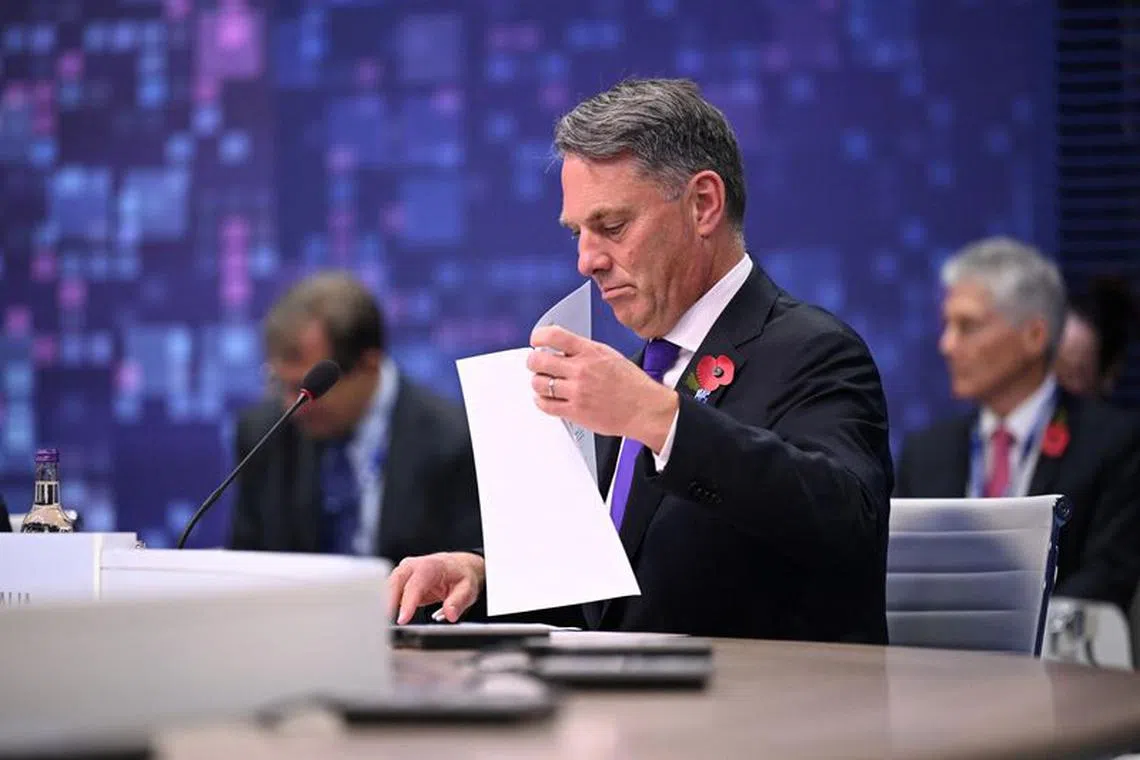Australia plans to boost Aukus tech-sharing, restrict ‘foreign’ access
Sign up now: Get ST's newsletters delivered to your inbox

The proposed law is critical for establishing a seamless industrial base with Australia's Aukus partners, said Defence Minister Richard Marles.
PHOTO: REUTERS
Follow topic:
SYDNEY – A new Australian law will toughen restrictions on how industries and universities share defence technology with foreigners, while exempting Aukus partners Britain and the United States from such controls, a draft of the measure shows.
The law is meant to replicate US export controls on defence technology, seen as a key step to beginning the Aukus plan
Scrutiny by the US State Department of Australia’s ability to protect defence secrets has partly contributed to delays by the US Congress in passing legislation to allow the sale of Virginia-class submarines to Australia and enable greater sharing of defence technology for Aukus.
The proposed law creates three criminal offences and further restricts sharing of defence technology to foreign persons inside and outside Australia, while allowing licence-free sharing among the Aukus partners.
“This is pivotal legislation which is critical for establishing a seamless industrial base with our Aukus partners,” Defence Minister Richard Marles said in a statement on Tuesday.
Australia needs to reform its defence industry to remove “burdensome red tape” with Britain and the US, he added.
Australia’s science academy said on Tuesday it was concerned about the impact on scientific collaboration with other nations, including China.
“It expands Australia’s backyard to include the US and the UK, but it raises the fence,” Professor Chennupati Jagadish, president of the Australian Academy of Science, said in a speech on Tuesday.
Prof Jagadish, a semiconductor and nanotechnology scientist, said the new rules could require closed research facilities.
Australian universities are reliant on international collaboration, and a third of research students come from overseas – with China the top source, he said.
“The global science system is more vulnerable than it has ever been due to decisions taken by states as they respond to security challenges,” he said at a conference in Canberra.
Australia had also signed an agreement with the Organisation for Joint Armament Cooperation, whose members are France, Germany, Italy, the United Kingdom, Belgium and Spain, for the exchange of classified information to support its defence equipment programme, Mr Marles said on Tuesday. REUTERS

